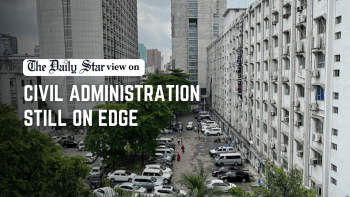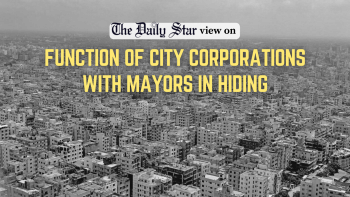Councillor crisis must not affect essential services

Service disruptions across various wards of Dhaka North City and Dhaka South City—primarily due to the absence of their councillors—are causing immense suffering for the residents. According to a report by Prothom Alo, 66 out of 75 ward councillors in Dhaka South are not attending their offices, while 11 out of 54 councillors in Dhaka North are similarly absent. This has led to a breakdown of services and many attendant complications. The uncertainty surrounding absent or absconding councillors will continue unless the authorities take decisive actions.
The ward councillor offices in Dhaka provide 14 types of services. Key among them are birth and death registration as well as issuance of various certificates such as citizenship, character, inheritance (warish), income, marriage or family membership, eligibility for elderly and disability allowances, etc. A councillor's office also handles attestations and no-objection certificates (where applicable), and signs off as a verifier for national identity cards and voter lists. Additionally, the councillor is responsible for overseeing mosquito control and sanitation workers and the distribution of TCB products. The fact that these vital services are being hampered at this critical time for the nation is extremely disconcerting.
Some of the councillor offices came under attack around the time of the fall of the Awami League government, which not only damaged these offices and their equipment but also destroyed important documents, many likely belonging to citizens. The complexities this may cause for people seeking services in the future remain unclear. Many people are already showing up at the ward offices daily for various services, only to return home dejected. Unless this issue is immediately addressed, people will continue to be denied essential services, leading to a huge backlog of pending paperwork and potentially more problems in the future.
Under the circumstances, the authorities need to urgently determine why the councillors are absent and ensure resumption of services. As local government experts have suggested, councillors can be given a week's time to return: those who do can be assigned multiple wards at once, while those who do not can be subjected to legal consequences. Additionally, alternative arrangements can be made, such as having the office of the regional executive officer provide some of the services. However, none of these solutions are permanent. Therefore, the government should consider a process for replacing absent ward councillors.


 For all latest news, follow The Daily Star's Google News channel.
For all latest news, follow The Daily Star's Google News channel. 









Comments